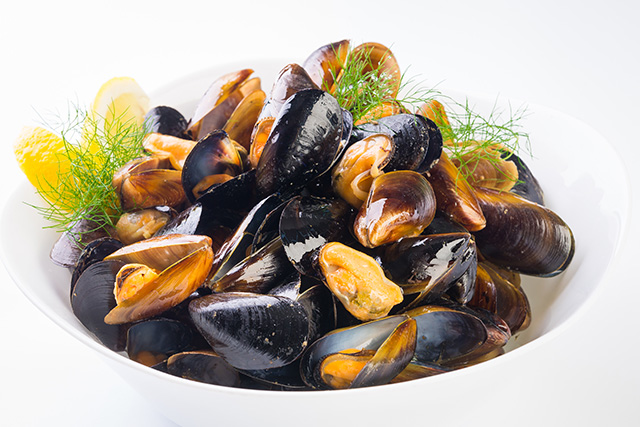Add mussels to your diet to prevent obesity and lower cholesterol levels
03/08/2019 / By Michelle Simmons

It’s time to add some mussels to your weight loss diet plan. Researchers from Memorial University in Canada found that adding blue mussels to a high-fat diet can help protect against obesity and heart disease by lowering cholesterol levels and reducing weight gain.
Obesity is associated with cardiovascular disease, insulin resistance, and hypertension, while dyslipidemia in obesity is one of the major causes of health complications. The Canadian researchers hypothesized that dietary intake of blue mussels would prevent weight gain and improve lipid profiles of mice fed with a high-fat diet. In earlier lab studies, the Canadian researchers have found that blue mussels are loaded with omega-3 fatty acids, which are good for the heart, and induce anti-obesity and insulin-sensitizing effects.
To test their hypothesis, the researchers fed mice with a high-fat diet supplemented with blue mussels for four weeks. After that, they switched the mice’s diet to a simple high-fat diet for another four weeks.
The results of the study revealed that mice fed with a high-fat diet supplemented with blue mussels exhibited substantially lower body weight gain and abdominal fat compared to those fed with a high-fat diet only. In addition, adding blue mussels to the diet significantly decreased total and low-density lipoprotein (LDL) cholesterol levels in the blood and liver, inhibiting cholesterol synthesis. From these findings, the researchers conclude that adding blue mussels to your diet may indeed prevent obesity and heart disease by reducing both weight gain and cholesterol levels, which are caused by following a high-fat diet.
These findings, which were published in the journal Nutrition Research, are important for the ongoing fight against obesity, as it remains to be an epidemic in the U.S., affecting about 93.3 million American adults. In addition to heart disease, diabetes, and hypertension, obesity can also lead to stroke, certain types of cancer, and premature death. (Related: Congratulations, America: Our obesity epidemic has officially hit an all time high.)
Effects of a high-fat diet on the body
Although the negative effects of a high-fat diet may be attenuated or neutralized, it is still best to avoid following such diets. Eating foods high in saturated fat, such as meat, cheese, butter, and dairy, can negatively affect your health by:
- Altering red blood cells. In one study, researchers at the Medical College of Georgia fed healthy participants two 1,000-calorie meals on different days: One was high in fat and low in carbohydrates, while the other was low in fat and high in carbs. Four hours after the meal, the researchers measured their artery function, red blood cell appearance, and levels of myeloperoxidase (MPO) – an enzyme that damages the arteries. Results showed that the fatty meal caused damage in the arteries, increased MPO levels, and changed the shape of red blood cells from round discs to a spiky appearance, which tend to clump and clot. These changes may lead to a heart attack.
- Reducing insulin sensitivity. A study revealed that eating a single meal high in saturated fat reduced insulin sensitivity, which can result in accumulation of fatty lipids in the liver. In another study, the same finding was seen and the reduced insulin sensitivity was carried over all the way to the next meal.
- Reducing testosterone levels. A study on healthy men fed with a high-saturated fat meal showed that their total and free testosterone levels significantly declined after the meal.
- Triggering the release of bacterial toxins. A study showed that eating a single meal high in saturated fat released harmful components in bacteria that contribute to diseases called endotoxins. These toxins play a role in the development of obesity and the hardening of arteries.
Sources include:
Tagged Under: blue mussels, cardiovascular disease, cholesterol, Diets, Dyslipidemia, food cures, food is medicine, heart disease, high-fat diet, Mussels, obesity, weight gain




















